A Routine for Young Children
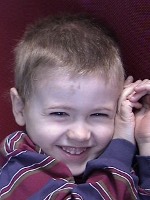 Children who are young thrive on order. If you have a certain way of doing things every day, your children will squabble less and be more productive. Yes, they will be happier because they feel like they've gotten something done. If your young children are pulling on you all day and complaining because they feel like they have nothing to do, this will wear you out and you will have no energy.
Children who are young thrive on order. If you have a certain way of doing things every day, your children will squabble less and be more productive. Yes, they will be happier because they feel like they've gotten something done. If your young children are pulling on you all day and complaining because they feel like they have nothing to do, this will wear you out and you will have no energy.
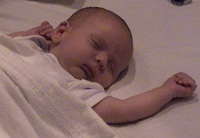 A structure to the day causes the child to smoothly transition from one activity to the next. The things that your child doesn't naturally like to do will be done as a matter of course because that's the way it's done every day. For example, if you sometimes have nap time for your three-year-old and sometimes don't, temper tantrums can erupt because the activity will be seen as optional. If it always happens, then they will automatically do it. Their bodies will have a rhythm where they are ready to lie down because of the great, productive things they've done during the morning. They are happily tired. It's like a farmer who sleeps sweeter because of his labor during the day.
A structure to the day causes the child to smoothly transition from one activity to the next. The things that your child doesn't naturally like to do will be done as a matter of course because that's the way it's done every day. For example, if you sometimes have nap time for your three-year-old and sometimes don't, temper tantrums can erupt because the activity will be seen as optional. If it always happens, then they will automatically do it. Their bodies will have a rhythm where they are ready to lie down because of the great, productive things they've done during the morning. They are happily tired. It's like a farmer who sleeps sweeter because of his labor during the day.
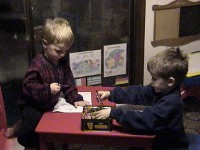 When setting up activities for your child in the morning, make sure you have a mix of active vs. quiet activities, physical vs. mental, activities with you vs. solitary activities that are open-ended. You can also alternate between having music or silence. Mix it up. Make the morning interesting. For children ages 0 to 4, an interactive activity only takes five minutes of your time, so intersperse those throughout the morning so they feel that they've connected to you.
When setting up activities for your child in the morning, make sure you have a mix of active vs. quiet activities, physical vs. mental, activities with you vs. solitary activities that are open-ended. You can also alternate between having music or silence. Mix it up. Make the morning interesting. For children ages 0 to 4, an interactive activity only takes five minutes of your time, so intersperse those throughout the morning so they feel that they've connected to you.
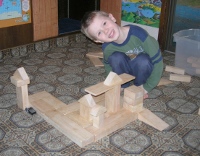 First you need to decide what sorts of activities you want your child to do during the day. Ask God what you should be doing with each child. Then make a list of things you would like to do, and fit them into your day, always in the same order. The child's brain is not as fatigued if the order remains the same. It becomes easier for the child to pay attention to the story you are reading if it is done at the same time each day. The familiarity of the routine is comforting.
First you need to decide what sorts of activities you want your child to do during the day. Ask God what you should be doing with each child. Then make a list of things you would like to do, and fit them into your day, always in the same order. The child's brain is not as fatigued if the order remains the same. It becomes easier for the child to pay attention to the story you are reading if it is done at the same time each day. The familiarity of the routine is comforting.
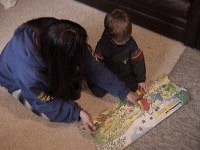 For a two-year-old girl, you might want to read a Bible story to her after breakfast (5 min.) You could play with alphabet refrigerator magnets to learn the letter sounds (5 min.) You might count something in the room (1 min.) Notice that none of these things requires advanced planning. Just plan it once after praying about it, and do the same thing each day. It is not hard.
For a two-year-old girl, you might want to read a Bible story to her after breakfast (5 min.) You could play with alphabet refrigerator magnets to learn the letter sounds (5 min.) You might count something in the room (1 min.) Notice that none of these things requires advanced planning. Just plan it once after praying about it, and do the same thing each day. It is not hard.
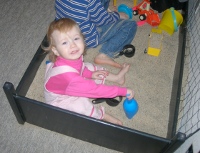 Then you could play music quietly in a room that is away from where you are. Classical music, Bible songs, or learning CD's can be in the background while your child does an open-ended activity like blocks, sand, large lacing beads, or wooden puzzles. If they have a habit of playing alone (or with a sibling) during this time of day, it will free you up to spend some time with God and check on your older children, to see if they are progressing on their math. Your own morning is more productive and you have a greater feeling of satisfaction because you yourself got more done because you did a small amount of planning for your younger children.
Then you could play music quietly in a room that is away from where you are. Classical music, Bible songs, or learning CD's can be in the background while your child does an open-ended activity like blocks, sand, large lacing beads, or wooden puzzles. If they have a habit of playing alone (or with a sibling) during this time of day, it will free you up to spend some time with God and check on your older children, to see if they are progressing on their math. Your own morning is more productive and you have a greater feeling of satisfaction because you yourself got more done because you did a small amount of planning for your younger children.
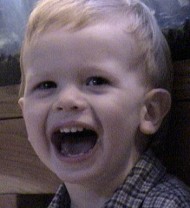 After your child is finished with one activity, spend five minutes interacting with the child, even if it's just hugging and tickling them. Then set up the next interesting activity, like tangrams, musical instruments, magnets on a cookie sheet, or setting up a fort with a card table and blanket (and throwing in some plastic dishes). Then let them play again for awhile. The possibilities are endless. They can blow on a pinwheel, drive cars on a mat with streets on it, play with a pop-up toy, or match up some memory cards. Young children love putting the chips in the slots of a Connect Four game. Just set it up and walk away, and the toddler will fill up the whole thing. It teaches the child hand-eye coordination.
After your child is finished with one activity, spend five minutes interacting with the child, even if it's just hugging and tickling them. Then set up the next interesting activity, like tangrams, musical instruments, magnets on a cookie sheet, or setting up a fort with a card table and blanket (and throwing in some plastic dishes). Then let them play again for awhile. The possibilities are endless. They can blow on a pinwheel, drive cars on a mat with streets on it, play with a pop-up toy, or match up some memory cards. Young children love putting the chips in the slots of a Connect Four game. Just set it up and walk away, and the toddler will fill up the whole thing. It teaches the child hand-eye coordination.
I always included my young children in my chores as well. That was part of my routine. (A routine is different than a schedule because you don't have to look at the clock. You let the activity happen until it is naturally finished.) My children would either watch me do the chores, or they would help me in any way they could. I never used nap time for doing chores. Nap time was a refreshing time off, a time to rejuvenate to have energy for my husband at the end of the day. Never work during your break. This is a secret of how to have more energy, and how to enjoy your life more.
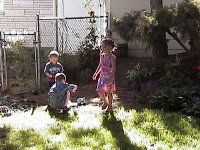 After lunch and nap time (older children can read during this time), the afternoon should be more unscheduled. Time outside is desirable if possible. So much can be learned in the backyard, and sunshine and fresh air will help your children to be healthier and happier. Running around and playing is good for them.
After lunch and nap time (older children can read during this time), the afternoon should be more unscheduled. Time outside is desirable if possible. So much can be learned in the backyard, and sunshine and fresh air will help your children to be healthier and happier. Running around and playing is good for them.
The point is to help your young children to progress with their lives, in their understanding of God, in the skills they will need for the rest of their lives, and in their knowledge of the world around them. There is no reason to hold them back and do nothing with them all day. Their imagination and creativity should be sparked. Each day should be fresh and filled with interesting activities. You will notice that if you have a structure to your day, you will feel like you are a better mother, your children will be happier, and you will also have more free time because your child will be occupied with fabulous activities.
For more information about Early Childhood Education, click here.









